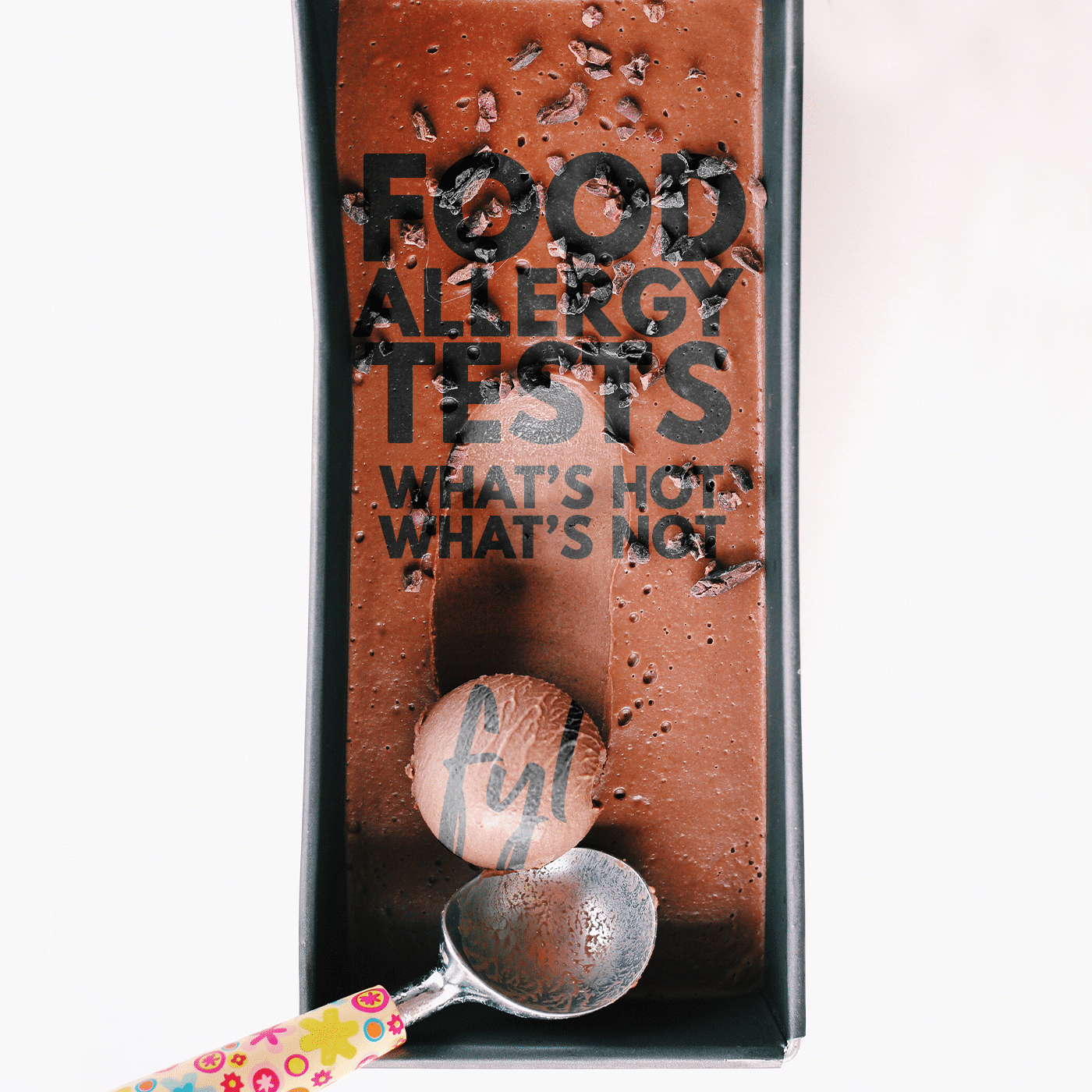If you or a loved one have a suspected food allergy, it can be a stressful time in your life. The world of allergy testing can be challenging to navigate and working out where to seek the right help can be difficult. There are a lot of different testing methods and unfortunately, only a handful are a validated method of identifying a food allergy. The testing methods usually promoted as you scroll through Instagram, that pop up in the side banners of websites, the one’s health gurus, acupuncturist, kinesiologist, etc are all talking about… Are usually NOT a valid diagnostic test!
The short answer, if you have a suspected food allergy, the best person to start the conversation with is your regular doctor. Diagnosing food allergies accurately is complex and generally requires the use of scientifically proven allergy testing methods, along with consideration of a detailed clinical history. In most instances, you may be referred to a clinical immunology/allergy specialist for further assessment and diagnosis.
So, what tests have been proven to work and are commonly used in food allergy testing? Keep reading to find out!
Evidence-Based Food Allergy Tests
Skin Prick Test
Is the most convenient method of allergy testing with results usually available within 20 minutes. Skin prick testing is most commonly performed on the forearm or the back. Each allergens location is marked and using a sterile lancet, a small prick is made through a drop of allergen extract. This allows a small amount to enter the skin. If you are allergic to the tested allergen, a small itchy lump (wheal) surrounded by a red flare will appear within 15-20 minutes. Skin prick testing cannot be used to detect allergies to aspirin or food additives.
Blood Tests for Allergen Specific IgE
These tests are often performed when skin testing is not easily available, when there is a skin condition such as severe eczema, or when a person is taking medication (such as antihistamines), that interferes with accurate skin prick testing. Total IgE antibodies may be raised in people with allergies and can be measured from a blood sample. High total IgE levels are also found in people with parasite infections, eczema and some rare medical conditions. High total IgE levels do not prove that symptoms are due to allergy, and a normal total IgE does not exclude allergy. Therefore, measuring total IgE levels is not routinely recommended in allergy testing.
Food Allergen Challenge Testing
Food allergen challenge testing may sometimes be required to confirm the diagnosis when the cause of a severe allergic reaction has not been confirmed. Food allergen challenges are procedures where small and increasing amounts of food is fed to a patient in a medical clinic. The patient is monitored to confirm if the food being tested causes an allergic reaction. Challenges are supervised by a clinical immunology/allergy specialist or trained and experienced paediatricians with appropriate resuscitation facilities immediately available. Most challenges take two to three hours to eat the required doses of food, followed by two hours of observation.
Food Allergy Test Methods to Avoid
There are many tests that have no scientific validation, that claim to detect allergy or “hidden” allergies despite no evidence of an immune reaction. There is currently no other validated way to determine a food sensitivity or intolerance other than an elimination diet followed by a structured challenge process (best done under the care of your dietitian). Tests that have not been scientifically validated may lead to unnecessary, and costly changes to diet and at times dangerous avoidance strategies.
There is currently limited regulation of unproven tests, treatment and devices. This means that certain testing methods can be listed by the Therapeutic Goods Australia (TGA) without having to prove that they work! Unsubstantiated claims to test, treat or cure allergy and other immune disorders are only regulated by the government, medical boards or advertising regulators if the practitioner is a registered medical practitioner. Meaning people who are not qualified at all to work in the space can give advice and are not held accountable. That’s a little scary!
There is no Medicare rebate available in Australia for tests that are unproven and the use of these methods is not recommended. The following tests are ones that you should save your money on as they have either been found to be inaccurate or there is no evidence to support them.
Tests found to be inaccurate:
- Vega (electro-diagnostic) testing
- Cytotoxic testing
- Iridology
- Kinesiology
- IgG food antibody testing and other techniques
Tests with no evidence:
- VoiceBio
- Pulse testing
- Hair analysis
- Oral provocation/neutralisation
As you can see there is a long list of tests out there that are not proven to work. Unfortunately, due to a lack of governance, there is also a lot of people who work within this space who are not qualified to do so. If you suspect you or a loved one has a food allergy, you are best discussing it with your regular doctor to ensure that you receive the rights tests and treatment. If you have or suspect you have a food allergy or inteolerance, it can be valuable to see a dietitian to ensure you are meeting your nutrient needs.







